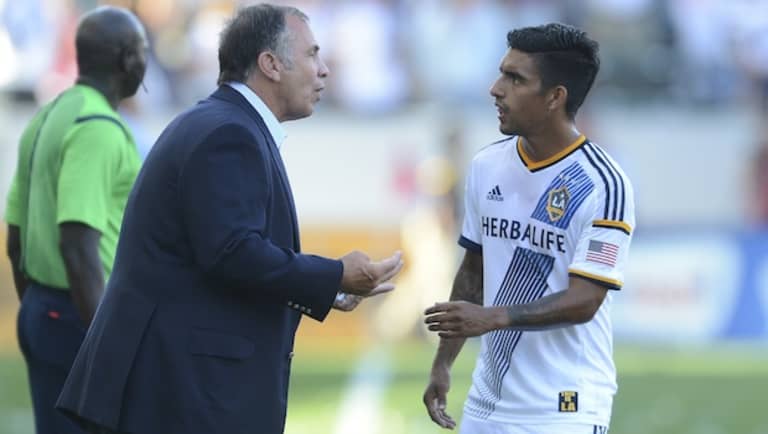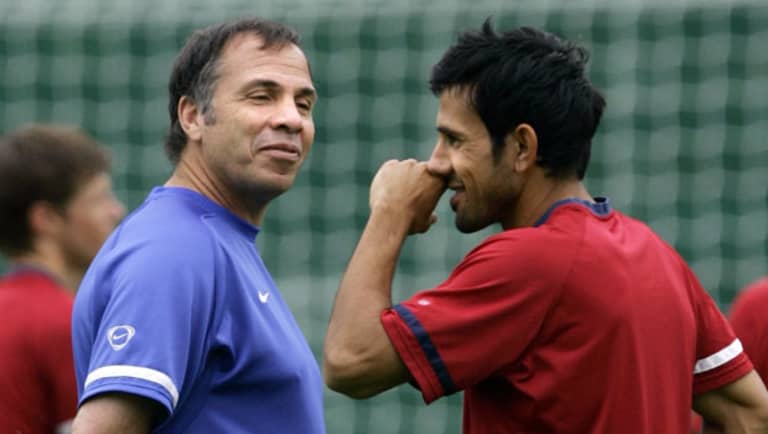“I've always thought about what I was going to do in my mid-60s. I thought I was going to retire at 55, so I'm a little bit behind schedule right now. Probably going to keep going for a while, doing something. I'm thinking from what I can tell I probably could be a sportswriter and do pretty well.”
Bruce Arena was 65 when he said this to an AP writer – delivered, of course, with the cutting, sardonic wit that’s been his trademark since his University of Virginia days three decades ago – a few days before leading the US men’s national team to the 2017 Gold Cup championship, his third time doing so.
It was the 18th major trophy of his coaching career, coming six months into his second stint in charge of the USMNT, and it seemed to reaffirm his status as the grand master among US coaches. Given how quickly he’d reversed the fortunes of a program lost in the doldrums – he’d also banked two home wins and two road draws in his first four Concacaf Hexagonal games – US fans could only feel reassured about the prospects for 2018 World Cup qualification, because that was how the reinvigorated players themselves clearly felt.
We all know how that turned out. A few key mistakes against Costa Ricaand Trinidad & Tobago were swiftly and embarrassingly punished, the margins for error disappeared and the biggest fiasco in modern American soccer history had suddenly torched not only Arena’s reputation, but also the aura of near-invincibility that had adorned it for nearly a quarter of a century.
As much as it may hurt all parties to recall those painful memories, there’s no escaping that context as Arena hops back into the game as the head coach, sporting director and all-around Mr. Fix-It for the New England Revolution. Like most anyone would be, “The Bruce” is hungry to wash that taste out of his mouth and gussy up his legacy a bit, and the listless Revs need a proven savior. So whatever warts got exposed under the hot USMNT spotlight, or in an increasingly cutthroat, rapidly-evolving modern MLS, this is still a no-brainer, a match made in MLS heaven.
Like a prolific striker both creating and spurning chances or a politician who’s been successful enough for long enough to build a track record for her opponents to attack her with, Arena’s strengths and weaknesses have been fairly well documented by now. He’s still eager to get back at it just the same. The costly, high-profile nature of the failure in his last job will dominate general fan perceptions, and understandably so, yet it should not obscure recognition of what got him to that point.
Again: 18 trophies.
“He’s a builder,” Arena’s longtime assistant Dave Sarachan told Grantland.com in 2012, shortly after the duo led the LA Galaxy to the second of their three MLS Cup victories in charge of the flagship club. “He loves to take on a project that needs construction.”

Bruce Arena and AJ DeLaGarza with the LA Galaxy | USA Today Sports Images
The Revs today are not entirely dissimilar to the Galaxy when Arena took over: Proud but lost, having wandered into a deep malaise despite plenty of potential on both an individual and organizational level. After the chaos, miscommunication and behind-the-scenes politicking of David Beckham’s disastrous first year in MLS, the Galaxy needed assertive leadership, clear lines of authority and effective decision-making.
And when given full control over the soccer side of operations, that’s exactly what Arena delivered. Within months, balance was restored and results improved. The influence of Beckham’s entourage was tamed, locker-room relationships were patched up, a steady string of competent roster-building moves were made.
Here it’s important to understand that Arena often shows a markedly different bearing in front of the cameras and microphones than he does to his players and colleagues. The snarky outer shell formed in his Long Island upbringing dominates public perception (and did him no favors during the qualifying disaster). But those who’ve played for him in MLS generally admire and respect him for his surprising warmth, straightforward, unassuming nature and ability to build cohesive team cultures. Especially when the wins stack up, as has been the case much more often than not.
“Bruce’s man management is very good. He’s very good with the players. He’s strict when he needs to be, and then he’s good at putting an arm around a player that needs it,” said Beckham, who played for a few decent managers in his day, in 2012.
Arena enjoys poking the proverbial bear, whether it’s teasing reporters, mocking the rising centrality of analytics or comparing Bill Belichick favorably to Pep Guardiola. It’s rarely stopped him from putting in the work that matters, at least not up until that fateful night in Couva, Trinidad.
“Every time I ever played for Bruce I knew exactly what he wanted from me in my role as an individual,” Pablo Mastroeni told Goal.com in 2017. “And then collectively as a team we knew what we wanted to do.

Arena and Pablo Mastroeni in 2006 | Reuters
“Did he do it with power points and magnets on a white board? No, he has his own way of communicating. Whether it’s pulling people aside, showing video, whether it’s walking across the field and saying, 'Hey, I want to play on that side of the field and I want to move our lines and move as a group.’ He just found simple ways to articulate exactly what we wanted, and because they were simple, everyone was on the same page and knew what he wanted.”
Though he once sarcastically and incredibly dubbed himself “the Milton Friedman of TAM” in one of his inimitable sitdowns with the Washington Post’s Steve Goff, Arena has limited interest in burnishing his own name in soundbites, nor in giving the general public too much information about his own methods. That’s left him in an awkward position when it comes to the widespread criticism that pelted down on him after Couva, so taking on even a big, multi-year project like the Revolution gig will probably feel like a relief by comparison.
Arena is 67 now, and in New England he must prove not only that he retains the gifts that made him the most successful American professional coach alive, but also that he’s still capable of picking up the new tricks of a changing league. The stinging lessons of 2017's complacency will surely fuel him and inform him. Retirement doesn’t look much closer than it did two years ago, and I’d bet he’s just fine with that.












